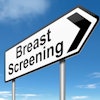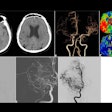Dear AuntMinnie Member,
It's been more than 30 years since the deadly effects of asbestos were discovered, but the substance continues to cast a long shadow over both the clinical and legal arenas. Thousands of people die each year from asbestos-related diseases, while the legal system continues to be clogged with cases that generate million-dollar judgments.
AuntMinnie.com examines the legal and clinical ramifications of asbestos-related imaging in a new two-part series by staff writer Shalmali Pal. You'll find the stories in our X-Ray Digital Community.
In part I of the series, we examine the U.S. government's B reader program, which certifies the expert witnesses who are used so often in asbestos litigation cases. A recent Johns Hopkins study found that B readers -- who are used frequently by plaintiffs' attorneys -- are far more likely to find abnormalities on radiographs than independent radiologists.
Part II of the series takes a look at the different imaging techniques used to detect the various pathologies caused by asbestos. X-ray has been the workhorse modality, but some clinicians are advising against relying solely on thoracic radiography due to its shortcomings for both sensitivity and specificity. Instead, CT can be invaluable for fine-tuning a diagnosis of asbestosis.
Read all about it in our X-Ray Digital Community, at x-ray.auntminnie.com.















